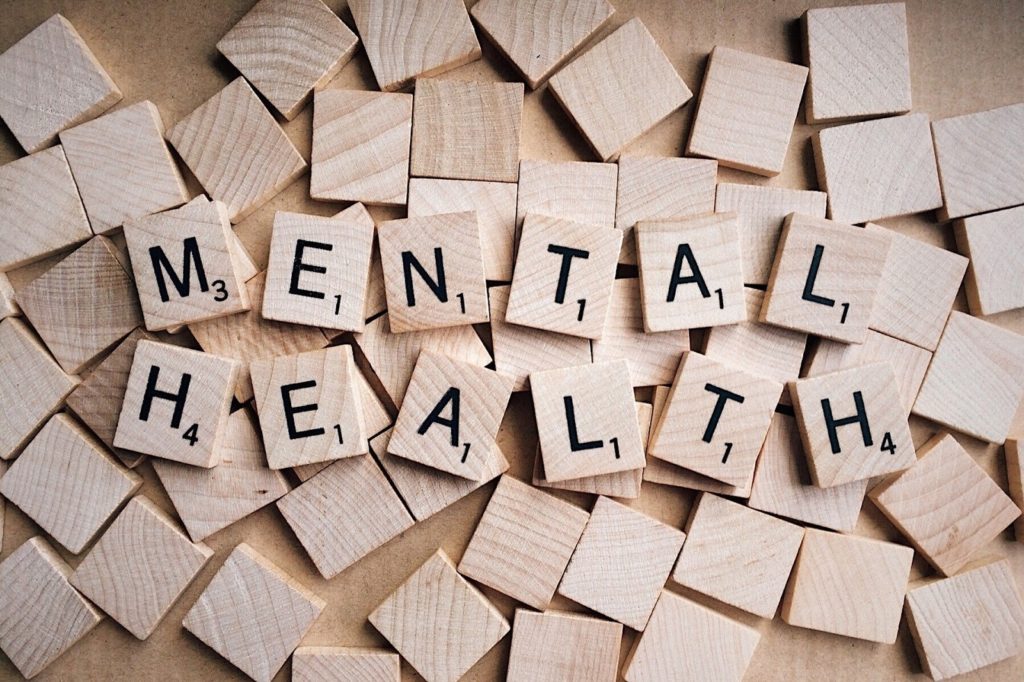
Financial Recovery
The impact of coronavirus has been felt worldwide. In April, over 80% of global businesses saw their place of work partly or fully close. In the UK alone, over 1.6 million people found themselves unemployed as redundancies soared in the second half of 2020. But as vaccines enter the market and we look towards a more optimistic 2021, we review key coronavirus recovery resources, and how individuals impacted financially and emotionally by the coronavirus can start to rebuild.
If you have been impacted by job losses, negative equity or felt the emotional or physical effects of coronavirus, we hope that these coronavirus recovery resources can help you get back on your feet and enjoy greater job security in 2021.
Resources To Start Freelancing
2020 has seen freelancers in demand as companies have had to make permanent staff redundant. As the difference between permanent workers and freelancers becomes blurred with the increase in remote working, freelancing is quickly being a more popular work style. If you are seeking employment, freelancing could be an excellent route to an income.
Alternatively, you may be in full-time employment, but still emerging from the wake of a recent redundancy or loss of income. Whether you are looking to freelance part-time, or full-time, the following resources will help you secure clients, manage a business, and handle the demands of working as a freelancer.
The Ultimate Freelancing Library is a compendium of online resources for the budding or veteran freelancer. The library covers a broad range of eBooks containing advice on everything a freelancer can be expected to encounter, from loan-paying students to freelancing retirees, and new starters to experienced freelancers fighting off burnout. The below eBooks can equip you with the tools you need to consider a freelancing career.
Getting Started As A Freelancer
A 2019 Flex Jobs study revealed that 70% of people decided to freelance to achieve a better work-life balance. In 2020, many people have found themselves furloughed or made redundant by their employers. If you have found that coronavirus has left you with negative equity or mounting debts, you may find that freelancing helps you build both your finances and emotional health after a difficult year.
John Cosstick has published an eBook called 20 Critical Steps To Start Moonlighting, which sets you up with the fundamentals of getting started as a freelancer. Cosstick highlights how to effectively communicate with clients, establish and define the scope of a project, and even why sacking a difficult customer is vital for your personal and business growth.
This resource can help you navigate from a face-to-face to a virtual role with ease, so you can feel confident in sourcing and developing relationships with clients from the outset. Cosstick also helps new freelancers successfully navigate the balance between full-time employment and a side-line freelance role. Like many of us in 2020, you may find that a freelance role is an essential part of supplementing your income.
Female hiring in the UK dropped by 1% during the peak of coronavirus, leaving many women with no job security. With 20 Critical Steps For Retirees And Women To Start Out, Cosstick caters specifically to women and retirees looking to work for themselves and balance financial security with the demands of personal or family life. The Ultimate Freelance Library is designed to cater to new freelancers in a range of situations, from those living in a rural environment to students needing to pay their loans.
Setting Yourself Up To Work From Home
If you were made redundant or furloughed at the start of the pandemic in March, you might find yourself working from home for the first time. The Ultimate Freelancing Library provides 20 Critical Steps To Cybersecurity, to help new freelancers navigate keeping their personal, confidential and client data safe.
The eBook helps you navigate everything from setting up your computer passwords securely, to identifying potential scams and safely archiving files on an external hard drive. It also provides you with advice on setting up a web host and email address securely and successfully.
Assessing Your Skills
The emotional turbulence of coronavirus may leave people feeling that they lack the specific skills or knowledge to secure a job. But assessing your skillset is a crucial way to both boost your wellbeing and evaluate the skills you need to get started as a freelancer. 20 Critical Steps For Skills Assessment For New Freelancers is a useful tool for assisting new freelancers in listing their skills and achievements. Start to define what products and services you can offer to a potential new client.
The book is a useful tool not just for freelancers, but anyone looking to make a job or career change. Cosstick encourages readers to evaluate their hobbies, interests, and to learn new skills. It is an excellent resource for those struggling with confidence or finding their feet after they are hit with a job loss or financial struggles. By evaluating your skills, readers can both celebrate their achievements and gain some essential clarity on how to retool and redefine their career.
Learning New Skills On A Budget
Learning new skills does not have to be a finance-consuming task. There are hundreds of free courses from reputable educators on everything from food to finances available on sites like Future Learn and MOOC. They offer useful resources if you want to develop additional skills to supplement your business skills, like self-marketing or managing finances. If you are considering a new career, you could also get a taste of the sector from selecting an industry-focused free course.
Resources For Managing Mental Health
2020 has been challenging enough, with a UK study showing that depression rates doubled during the peak of the pandemic. If you are currently freelancing or starting as a freelancer, managing stress is essential for maintaining your health and your business. 20 Critical Steps To Journaling To Overcome Stress, Anxiety and Depression helps not just freelancers, but everyone, navigate through stress, anxiety, and depression by journaling. Learn to find a way to vent your emotions and find a creative outlet through the lost art of writing.
Research supports that journaling decreases stress, boosts wellbeing and even increases resilience. Theories suggest that journaling helps individuals to slow down and evaluate their lives by capturing their thoughts on paper. If you find yourself overwhelmed with mounting debts, job security or negative equity, journaling can help you better channel your thoughts and create a sense of structure and planning to your day.
If you are struggling with your mental health, you can always seek support through free advice services like Samaritans or Mind.
Getting Back On Your Feet
The Ultimate Freelancing Library frequently offers reduced fees and discounts to help those struggling during the global pandemic get back on their feet and into freelancing. There are twelve eBooks in total catering to those looking to enter a freelance career to enhance their income, start a new career, and start to recover emotionally and financially from the impact of coronavirus.
Recovering From Financial Difficulty
As few as 1 in 3 individuals could be considered financially literate, studies suggest. The global pandemic and resulting financial crisis have only exacerbated this issue. How many of us have an emergency fund, for example? The final book in the Ultimate Freelancing Library series is Negative Equity: What The Banks Don’t Tell You and highlights how freelancing can help those suffering from negative equity improve their financial health.
What Is Negative Equity?
Negative Equity is when the current value of your property is less than the total cost of your mortgage, or how much you paid for the house. If, for example, your house was currently worth £260,000, but your original mortgage was £280,000 and the overall house sale £300,000, this would put you in negative equity. Negative equity usually arises from an economic downturn, leading to a sharp drop in house prices. The damage to the economy due to coronavirus is being felt worldwide, it may lead to many homeowners experiencing negative equity for the first time.
Resources For Those With Negative Equity
Negative Equity Today includes where to get advice on mortgages, loans and how to manage your finances if you are in negative equity. It can impact those on an interest-only mortgage. Legal and General saw a notable increase in interest-only mortgage enquiries, suggesting that many more individuals are looking for ways to reduce their mortgage payments. As people start to recover financially, economically, and emotionally from coronavirus, many may be looking at ways to move away from an interest-only mortgage and look at ways to reduce the impact of negative equity.
Fixed-Rate Mortgages
Fixed-rate mortgages may be a solution to combating negative equity in a property in the medium to long term. By reviewing your rights to a fixed-rate mortgage, you can gain more financial knowledge and strategy rather than by making variable interest rate loan regular payments and hoping for house prices to stabilize. By making fixed-rate mortgage payments as a strategy it may be possible to reduce your debt using record low interest rates while waiting for house prices to improve. However, the first step is to get advice early before making any decisions.
Seek independent advice before consulting with your mortgage lender to make the switch from a variable interest rate loan to a fixed rate loan. If you are coming up to a re-mortgage, you may consider switching at this stage as it may be a more favourable time to consult with your lender. If you think you are at risk of going into negative equity, consider switching to a fixed-rate mortgage as early as possible with your advisor to prevent the possibility of your being locked out of this strategy.
Switch-Point calculators allow you to establish when a switch to a fixed-rate mortgage will best benefit your budget. By comparing your existing variable home loan rate mortgage loan repayment to a fixed-rate one, it may help you assess with your advisor whether a fixed-rate mortgage would help you pay off your home loan quicker. It also factors in your current budget so you can establish if an increase in payments is feasible considering your current financial situation. It is clearly a better way to avoid mortgage stress in the future.
Resources For Rebuilding Your Finances – Financial Recovery
For advice on negative equity and fixed-rate mortgages in the UK, the Money Advice Service is a useful resource for free and impartial consultations. Call 0800 138 7777 – they do not just offer advice on negative equity, but a wide range of financial needs. They also have a budget planner to help you review your finances and assess your expenditures. There is personalised advice offered and tailored to your incomings and outgoings. They also have a range of debt advisor services collated on their site to help those concerned about their debts.
Many charities can offer independent advice if you are looking to rebuild your finances. The Money Advisor Network is affiliated with the UK government and offers independent advice on finances, budgets, and debt management. They can help you draft action plans for moving forward with rebuilding your finances and specifically provide coronavirus recovery resources during this time.
Debt Management
Pay Plan offers free debt advice and free debt management plans to those in need of coronavirus recovery resources in England. You can fill out a confidential and secure debt help form on their site to help them assess what plan would best suit you. Depending on your level of unsecured debt, they may advise on an Individual Voluntary Agreement (IVA).
If you are eligible for an IVA, as much as 80% of your debt could be written off, and the rest can be set up in monthly instalments over 5 to 6 years. There are certain conditions to an IVA, like spending restrictions, and these would not cover secured debts like a mortgage. If you live in Scotland, you would instead take out a TrustDeed, which has other risks and benefits.
As we look towards 2021, studies show an increasing sense of optimism for the New Year. From new career opportunities to better job security, there is a lot to look forward to in a post-pandemic world. Until coronavirus is no longer a household name, we hope these coronavirus recovery resources can provide you with the tools you need to recover financially, emotionally, and career-wise from 2020.
If you wish to comment on an article or post, please use the contact form below.




















